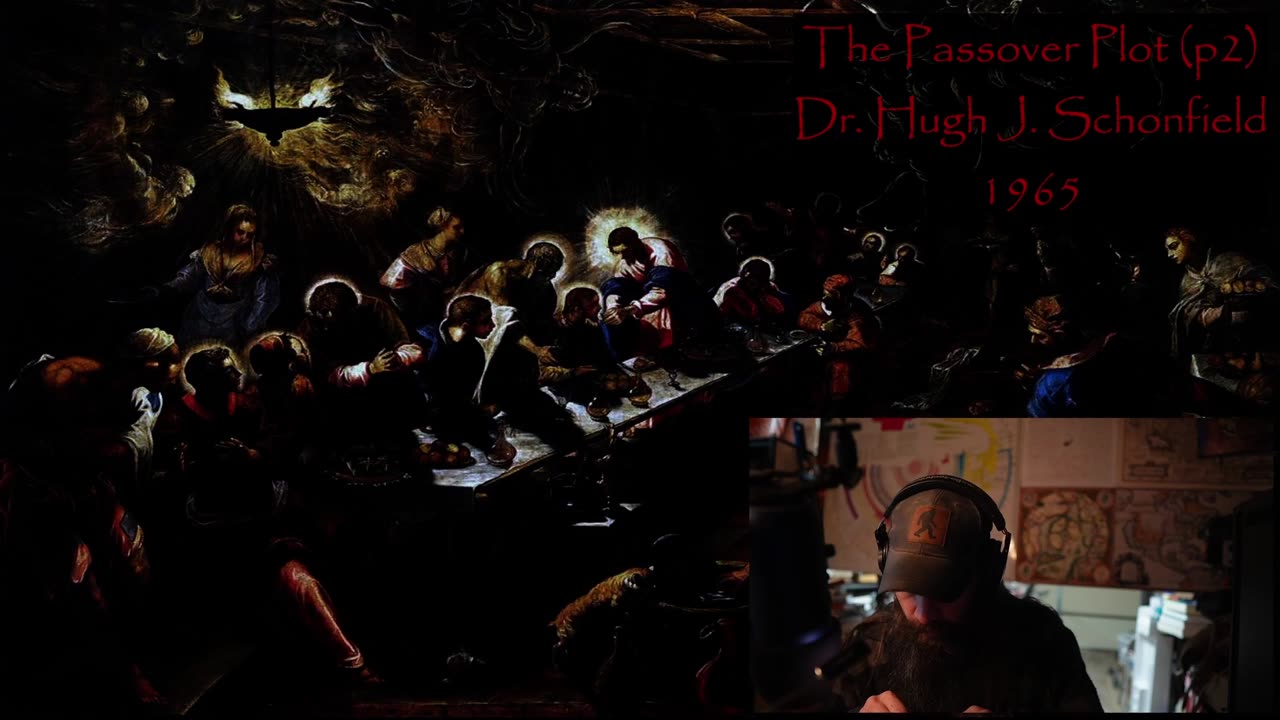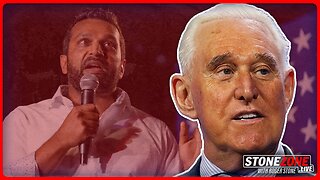Premium Only Content

The Passover Plot - Part 2
The Passover Plot - Part 2
This video explores the origins and development of Christianity, particularly focusing on the scant historical records of Jesus' life and early followers, the impact of Jewish revolts against Rome, and how these events influenced the formation of Christian beliefs. It discusses the limited information that exists about the early years of Christianity and emphasizes the need for historical context when interpreting biblical texts, particularly the New Testament. The speaker suggests that the narratives found in the gospels may have been shaped significantly by the surrounding historical and socio-political circumstances of the time and outlines how traditions, oral histories, and various influences have contributed to the portrayal of Jesus as the Messiah.
Key Points:
Scant Historical Records
The video begins by emphasizing how little we know about the beginnings of Christianity, claiming that with the New Testament in hand, information is still surprisingly scant, especially in the early history of Jesus' followers and the Jewish believers.
Impact of Jewish Revolts
It highlights the significant impact of the Jewish revolts against Roman rule, particularly the first and second revolts, on the early Christian community and its beliefs in Jesus' messianic role, arguing these events created a context of urgency and fervor surrounding the figure of Christ.
Gospels and Tradition
The speaker discusses how the gospels may have shaped narratives surrounding Jesus based on oral traditions and prophetic interpretations from Jewish scripture, demonstrating how early Christians could weave miraculous elements into their accounts of Jesus' life.
Messianic Beliefs and Challenges
The video reviews how early Christians faced challenges in their faith and how sociopolitical pressures from Roman authorities and Jewish leaders affected the formation of Christian doctrine, leading to a shift in narrative as they spread outside Palestine.
Role of Historical Context
It stresses the importance of historical context when reading the gospels, illustrating how Jesus' actions and teachings can often be seen as responses to specific historical events, public sentiments, and religious expectations of his time.
Transformation of Christian Beliefs
The video concludes by underlining that as Christianity spread into non-Jewish environments, it absorbed various cultural beliefs, notably leading to a transformation of the initial, more nationalistic views of Jesus into a broader, more Gentile-inclusive faith.
-
 8:22
8:22
DropItLikeItsScott
1 day agoThis IS one of the Greatest AR's EVER! The Nemesis by Special Ops Tactical
1101 -
 2:42:30
2:42:30
TimcastIRL
10 hours agoKash Patel CONFIRMED, Deep State PANICS, Mitch McConnell To RETIRE w/ Kevin Smith | Timcast IRL
175K318 -
 1:04:47
1:04:47
Candace Show Podcast
14 hours agoBecoming Brigitte: The Epilogue
124K146 -
 3:43:51
3:43:51
Alex Zedra
9 hours agoLIVE! Come Play WoT with me!
48.6K12 -
 5:22:49
5:22:49
Drew Hernandez
17 hours agoDOGE EXPOSES $2 BILLION SCHEME LINKED TO STACEY ABRAMS?!
74.8K47 -
 1:27:59
1:27:59
Kim Iversen
12 hours agoRFK Jr Declares No More Cheetos on Welfare? | Yale Confirms Long Covid Is Actually Vaccine Injury!
110K121 -
 1:08:43
1:08:43
The Charlie Kirk Show
9 hours agoTHOUGHTCRIME Ep. 74 — Charlie's Campus Return? Robo-Butlers? Garden of American Heroes?
93.1K18 -
 1:09:53
1:09:53
Slightly Offensive
10 hours ago $8.51 earnedIs the US Headed for MORE WAR Under TRUMP? | Guest: Scott Horton
55.9K14 -
 58:29
58:29
The StoneZONE with Roger Stone
9 hours agoRoger Stone Hails Confirmation of Kash Patel, Trashes Schiff for Attacks On Patel | The StoneZONE
62.1K21 -
 48:44
48:44
Man in America
15 hours agoA MASSIVE Global Financial Reset Is Coming—Are You Ready?
49.3K24